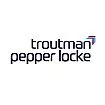On March 21, 2016, the North American Electric Reliability Corporation ("NERC") submitted to the Federal Energy Regulatory Commission ("FERC" or the "Commission") an informational filing (the "Report") on the implementation of the Risk-Based Registration ("RBR") initiative. The filing was made in compliance with a corresponding directive from the Commission's March 19, 2015 order largely approving NERC's RBR initiative (see March 23, 2015 edition of the WER).
In the Report, NERC stated that, consistent with the Commission's March 19, 2015 order, it had deregistered from the NERC Compliance Registry all entities registered as Purchase Selling Entity ("PSE") and Interchange Authority ("IA"), and had significantly reduced the number of entities registered as Distribution Providers ("DP"), as appropriate, from 466 DPs on April 20, 2015, to 386 DPs, as of March 1, 2016.
NERC also reported that it had established necessary procedures for the NERC-led Review Panel—a body that will review individual entities on a case-by-case basis to determine whether a particular entity is eligible for a "sub-set" list of Reliability Standards (see November 16, 2015 edition of the WER). While an entity registered for a NERC function is normally responsible for compliance with all Reliability Standards applicable to that function, an entity with a sub-set list is only responsible for compliance with the Reliability Standards, requirements, and/or sub-requirements specifically enumerated on its sub-set list. NERC stated that it had developed a standardized form that entities submitting requests to the Panel must complete, and had also developed a secure file transfer protocol site where Regional Entities, entities requesting panel review, and entities impacted by a given request (e.g., Reliability Coordinators, Balancing Authorities, Planning Authorities, and Transmission Operators) can access information examined by the NERC-led Review Panel in rendering a decision.
NERC also reported that, despite its efforts to establish classes of similarly-situated entities that may be eligible for sub-set lists automatically, it had been unable to identify any such classes beyond Under Frequency Load-Shedding DPs—currently the only such group that has an approved sub-set list. NERC stated that "[u]ntil a consistent pattern emerges warranting a common sub-set list of Reliability Standards, future candidates of sub-set lists must apply directly to the NERC-led Review Panel for a case-by-case basis determination."
Lastly, NERC reported that for all PSE, IA, and DP entities that had been deregistered or deactivated, there were no Category 1 – 5 events reported, no Department of Energy Form OE-417 reports submitted, and no compliance issues related to Reliability Standard EOP-004. Additionally, NERC noted that none of the aforementioned entities had been reported in the Situational Analysis Morning Report, which publishes events on the Bulk Electric System.
A copy of the Report may be found here.
The content of this article is intended to provide a general guide to the subject matter. Specialist advice should be sought about your specific circumstances.
[View Source]

